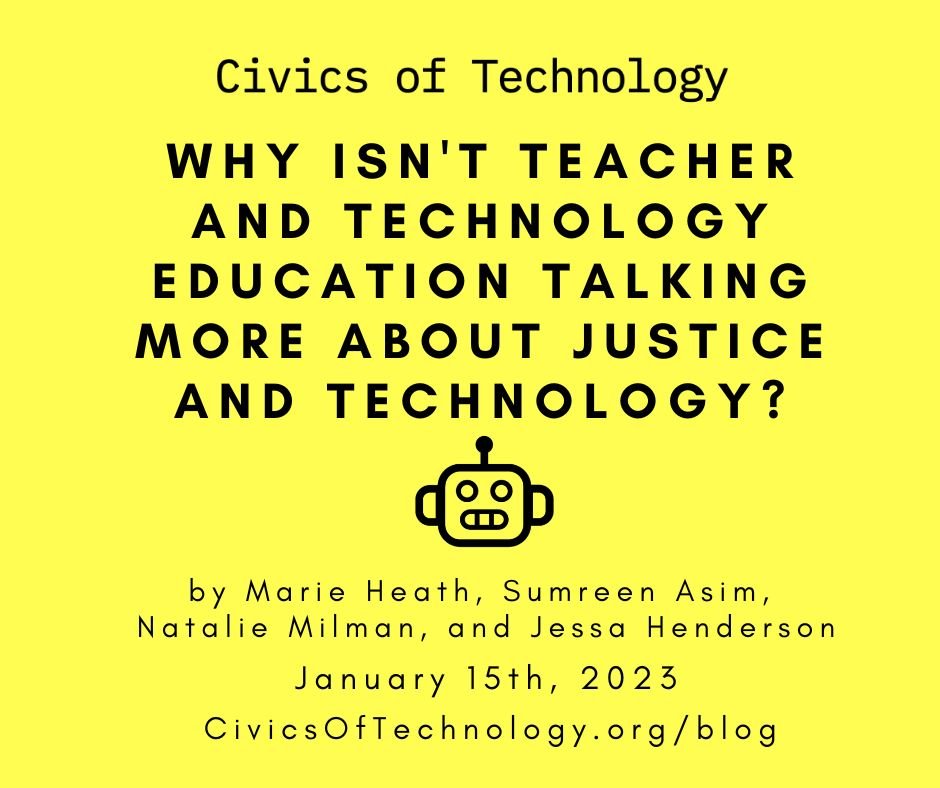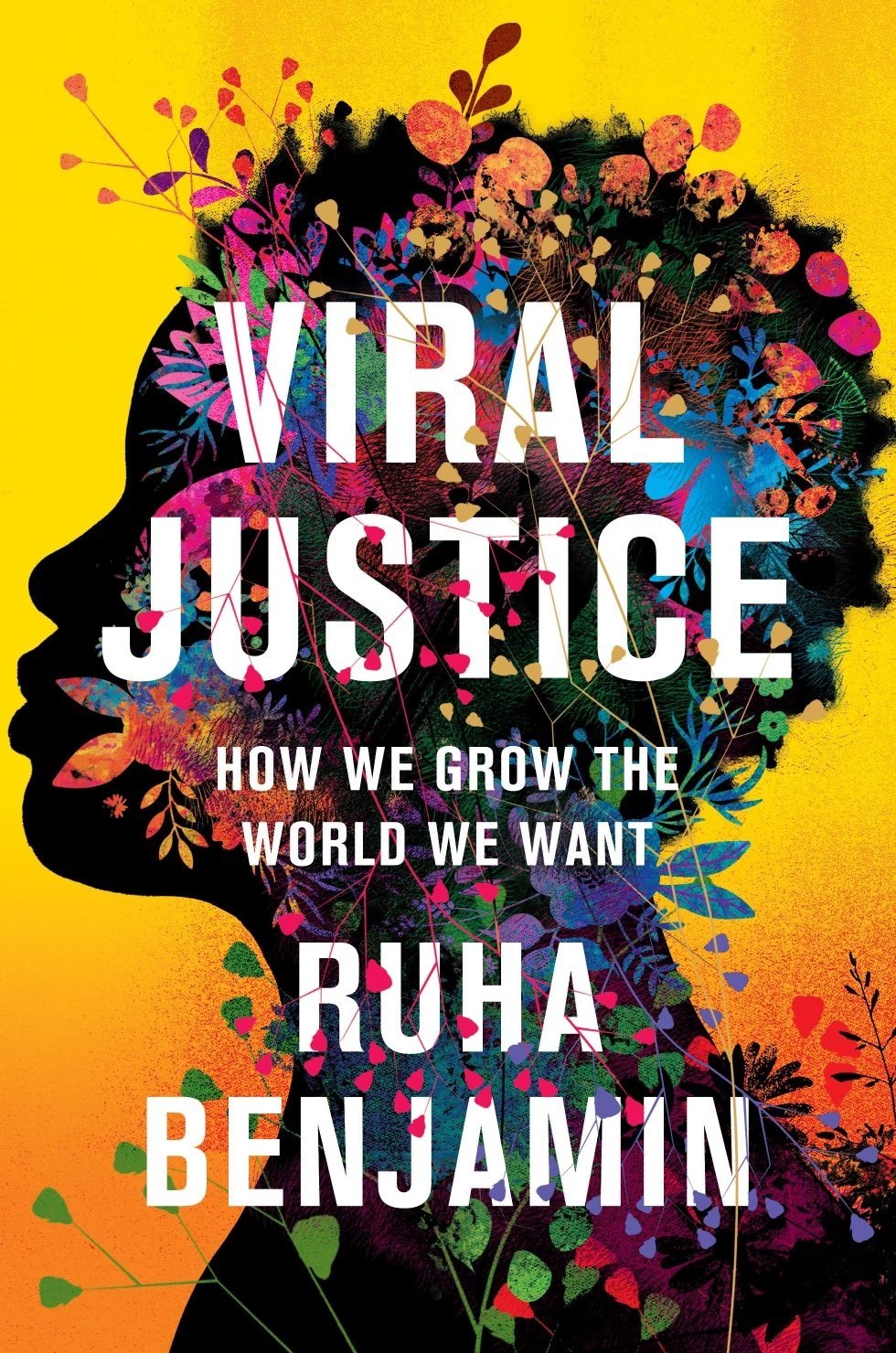Subscribe to our newsletter
Subscribe to our newsletter

Why Isn’t Technology and Teacher Education Talking More About Justice and Technology?
Marie Heath, Sumreen Asim, Natalie Milman, and Jessa Henderson discuss their recent (open access!) article, Confronting Tools of the Oppressor: Framing Just Technology Integration in Educational Technology and Teacher Education, which aims to pull back the curtain and draw attention to forms of coded inequity in teacher education and technology education.

Why We Wrote Power On!
Jean J. Ryoo and Jane Margolis share why they wrote the graphic novel, Power On!, and their vision for working toward justice in computer science and society.

What can we learn from AI Chatbot answers to our technoskeptical questions?
In this post, Jacob and Dan use their human brain’s to discuss the limitations of ChatGPT’s AI.

Join Us for our January Book Club Discussion of the Computer Science Graphic Novel Power On!
Join us on Thursday, January 12th, @ 8:00 p.m. ET to discuss Power On!. Register on our events page for the Zoom link.

How Did We Get the Smartphone? Or, Understanding the Longer and Larger History of Technological Change
In this post, Scott Metzger digs into the longer and larger history of the smartphone.

Whither Twitter?
In this post, Dan muses on Twitter’s demise, whether to leave the platform, and why his local roller derby team helped him find answers.

A Classroom Activity Showing Twitter’s Blue Checks Were Flimsy Before Musk
In this blog, Marie and Dan discuss Musk’s disruption of Twitter’ blue check verification and share their tweet activity and media education approach that shows that verification was a problem even before this.

November Book Club, Viral Justice by Dr. Ruha Benjamin
Let’s grow the world we want during our November 17th book club as we discuss Dr. Ruha Benjamin’s book, Viral Justice!

What can speculative fiction teach us about technology?
In this blog post, Jacob ponders on how speculative fiction can help us think about human relationships with technology. Of course, he recommends some books.

Reflecting on Data, Power, and Pedagogy
Autumm Caines and Michelle Ciccone consider how visualizing surveillance data via DigiPower creates opportunities to learn about surveillance, privacy, and our own feelings of ambivalence, exhaustion, or despair around these topics.

Podcasts We Learn From
In this post, Marie and Dan share some of their favorite podcasts and episodes for critical tech. What are they missing?

Reviewing and Expanding the Civics of Technology Curriculum
In this post, Marie and Dan review the curriculum on the Civics of Technology site and invite others to help expand it by publishing their lessons and activities.

Question & Answer with Paris Marx
In this post, Jacob Pleasant’s follows up on his review of Paris Marx’ “Road to Nowhere” with a Q&A.


Why McLuhan?: Thoughts on “Re-understanding Media: Feminist Extensions of Marshall McLuhan”
In this post, Michelle Ciccones and Dan Krutka offer some thoughts on the Civics of Technology book club reading of “Re-Understanding Media: Feminist Extensions of Marshall McLuhan.”

What will we be?
In this post, Marie and Dan mourn the loss of Real Life Magazine and consider whether the Civics of Technology Project can fill some of that void. They pose the question to our emerging community, what will we be?

Why Space Pollution is no Solution: Thoughts on Technology and Climate Change
In this post, Zack Seitz writes about technology, the environment, collateral effects, and solutions doomed to go wrong.

Why is it difficult to imagine better transportation systems?: A review of “Road to Nowhere”
In this blog post, Jacob Pleasants reviews Paris Marx’ 2022 book, “Road to Nowhere: What Silicon Valley Gets Wrong about the Future of Transportation.”

Maybe Don’t Send That Email
In this post, Dan Krutka discusses the challenges of email overload and offers suggestions for slow, relational, and purposeful workflows.

